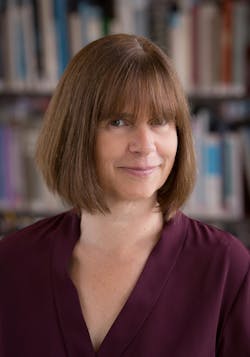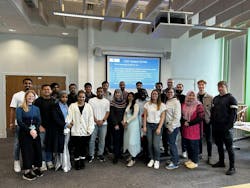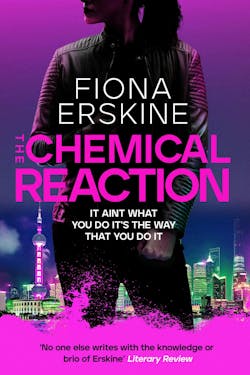Fiona Erskine Macleod is a professor of Process Safety and Loss Prevention at the University of Sheffield in the School of Chemical, Materials and Biological Engineering. She is also a professional engineer and a crime writer. Her first novel, The Chemical Detective, was published by Oneworld and shortlisted for the Specsavers Debut Crime Novel Award 2020.
In September 2024, I featured her on the Process Safety with Trish & Traci podcast. In that podcast, she discussed balancing her engineering career with writing and how she uses her novels to educate readers about process safety and engineering concepts.
I caught up with her recently and posed these five questions:
What's something you've learned recently that changed how you approach your work?
I never expected to teach and was quite unprepared for how much joy it gives me in my 60s. It’s much harder than it looks. However well you think you understand something as an experienced practitioner, effective teaching requires you to dismantle and reconstruct. How do you know what you know? How do you transfer it from your brain to the brain of another? It’s not enough to tell or even to show. People must want to learn. They need to be engaged and intrigued enough to develop their own questions, which they answer by doing; we have a lot of fun with workshops.
If you’re lucky enough to have students as smart, thoughtful and curious as those on the Sheffield Process Safety and Loss Prevention MSc course, then expect to be challenged. I’ve read more academic textbooks, standards and best practice guides in the last year than in the previous 40 years, reconsidering many of the things I once took for granted.
What part of your work energizes you most, and what drains you?
I love getting my teeth into a chewy problem, building teams, removing obstacles and then stepping aside to let people fly. I enjoy talking to strangers on public transport and listening to people with different skills or experience talk about their work; we learn so much from one another by sharing stories. I’m not very good at long, formal committee meetings and am intolerant of people who shirk responsibility, pass the buck or blame others.
If you could solve one problem in your industry tomorrow, what would it be?
I want to see the former Union Carbide site in Bhopal, India, properly cleaned up and redeveloped in a way that benefits the local community. When I visited, I was shocked to find that decades after the worst chemical accident in history, the factory structures still stand, and the ground remains polluted inside and outside the site (not from the accident itself but from the manufacturing activities between 1969–1984).
Perhaps parts could be preserved as a memorial to all the people who died and to help those who continue to suffer; parts could become a center of process safety excellence and land remediation expertise; there’s room for a top-class cricket ground and outdoor cinema, too. But that’s not for me to decide; all I can do is call attention to a terrible, ongoing injustice. (Additional Bhopal resources from IChemE can be found here.)
What's a project or accomplishment you're proud of that others might not fully appreciate?
I’m really proud of my six published novels (more on the way). In my 50s, I set about mastering a completely new set of skills — the craft of writing fiction. I’m still learning. I don’t write what I know; I write to understand the things that puzzle me. I hugely enjoy writing as thinking.
How has your work influenced how you see the world outside of your job?
Working as an engineer in China and India and investigating tailing dam disasters in Brazil brought home to me what a privileged and protected life I have. It’s not who we are or what we do but where we are born that dictates so many of our life chances. There are people in the world who lack fresh air to breathe; clean water to drink; land to build houses, schools and clinics; healthy and productive rivers, seas, forests and fields.
I became an engineer to be ingenious, to solve problems, to help make the world a better place. I see little evidence of wealth trickling down from industrialization in many of the more remote places I visit. I believe in the power of science and technology to do good. However, if our global financial systems favor short-term gain over long-term stewardship of precious natural resources, we will live in an increasingly unfair and unequal world.
Fiona’s Book Suggestions
Braiding Sweetgrass by Robin Wall Kimmerer
Orbital by Smantha Harvey
The Chemical Reaction by Fiona Erskine
The Banqiao Dam Disaster by Fiona Macleod
About the Author
Traci Purdum
Editor-in-Chief
Traci Purdum, an award-winning business journalist with extensive experience covering manufacturing and management issues, is a graduate of the Kent State University School of Journalism and Mass Communication, Kent, Ohio, and an alumnus of the Wharton Seminar for Business Journalists, Wharton School of Business, University of Pennsylvania, Philadelphia.




